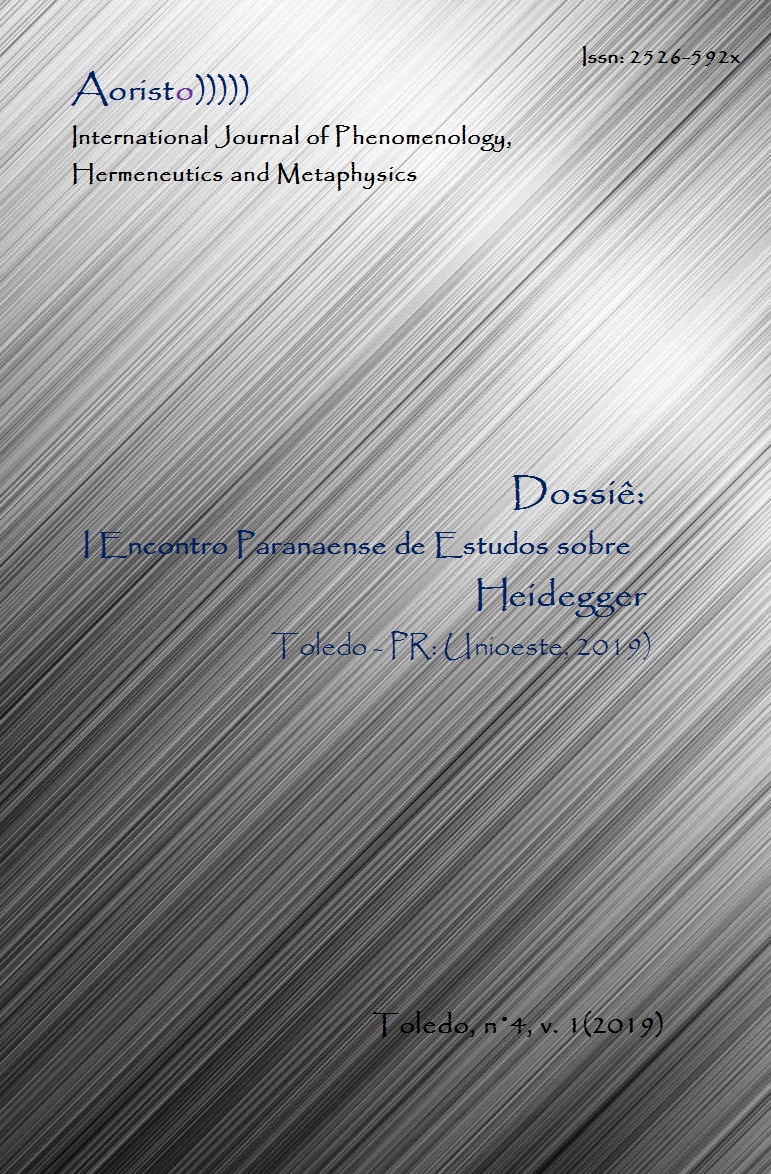Why relativity needs phenomenology?
eidetic-relativistic kinesthetics and temporality in Hus-serl, Weyl and Einstein.
DOI:
https://doi.org/10.48075/aoristo.v2i2.23257Keywords:
Phenomenology, Husserl, Relativity, Einstein, Hermann WeylAbstract
This paper aims to explain how the insights Weyl gleaned from Husserl played an important role in his scientific work, and then how Einstein’s major work exhibit important parallels to Weyl’s work, thereby establishing phenomenology both as an indirect historical influence and a systematic underpinning for Einstein’s work in theoretical physics. In so doing, this paper seeks to show how some of the most basic problems that Einstein addresses have a kinship not just to problems addressed in a completely different context by Edmund Husserl’s phenomenology and his circle, but also to perennial problems in ontology and epistemology that go back to Kant, Hume and Leibniz. The conclusion seems to suggest that it not only shows how phenomenology both historically and systematically provides a backdrop for Einstein’s work; my thesis actually situates issues in twentieth-century scientific thought against the backdrop of a philosophical development, and perhaps the most original idea of this study consists not just in showing how phenomenology influenced Einstein, but also how Einstein’s work on relativity had an important influence on the work of Edmund Husserl in Crisis of European Sciences and in his later works.Downloads
Published
How to Cite
Issue
Section
License
Copyright (c) 2019 Aoristo - International Journal of Phenomenology, Hermeneutics and Metaphysics

This work is licensed under a Creative Commons Attribution-NonCommercial-NoDerivatives 4.0 International License.
Copyright Notice
1. I grant the AORISTO – International Journal of Phenomenology, Hermeneutics and Metaphysics the first publication of my article, licensed under Creative Commons Attribution (which allows sharing of work, recognition of authorship and initial publication in this journal).
2. I confirm that my article is not being submitted to another publication and has not been published in its entirely on another journal. I take full responsibility for its originality and I will also claim responsibility for charges from claims by third parties concerning the authorship of the article.
3. I also agree that the manuscript will be submitted according to the Aoristo’s publication rules described above.
License Creative Commons
This work is licensed under a Creative Commons Atribuição-NãoComercial-CompartilhaIgual 4.0 Internacional, which allows you to share, copy, distribute, display, reproduce, in whole or in part, for as long as there is no commercial purpose, and authors and source are cited.


